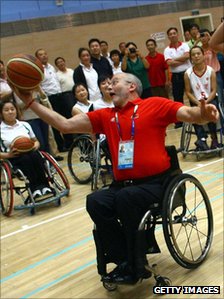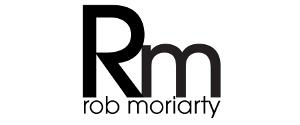I’ve long believed that the “D-Word” (disability) shouldn’t be used. The negative association implied by the “dis” prefix is that something “can’t be done”, whereas in many cases the opposite is true – if that person is given the right help and support. We all have things that we are good and bad at, we can’t do everything. If you asked my mother to work out the square root of 729, she would say “ask Rob”. If you told her the answer was 27, she still wouldn’t understand why that was important. But she can speak 4 languages, so if you can’t, does that make you linguistically dis-abled? Despite my injury, I have done more in 13 years than many of my peers.
 I wholeheartedly agree with Sir Philip Craven’s desire for the Paralympic Games being an excellent opportunity to erase the word. However, the games alone can’t achieve this; a massive cultural shift is needed. So why is this word “disabled” used?
I wholeheartedly agree with Sir Philip Craven’s desire for the Paralympic Games being an excellent opportunity to erase the word. However, the games alone can’t achieve this; a massive cultural shift is needed. So why is this word “disabled” used?
The human condition says when we first meet people we subconsciously decide what that person is like. But over time, we learn about that person as we get to know them, and we often find out a lot of things that we couldn’t tell from meeting them the first time. If you introduce your friends to someone new, you don’t say “Hi I’d like you to meet this fat, overweight, balding chap in a smart suit who works in the city” do you? You say, “Hi, this is my friend, he’s a banker and you can see he likes a few pies”? If we can do that with our friends, why can’t we do that with everyone from the start? We shouldn’t pre-judge people based on what they look like.
Recent decades have seen a needed emphasis on the word to ensure rights are equally afforded. I’m not saying that the work done so far has been in vain, I’m just saying there’s a long way to go. The next step is quite a big one – full social inclusion.
We all have different ideas about what we want in the world, but surely the one thing that everyone can agree on is that we should all be able to live as we choose despite any strengths or weaknesses that we might have. It shouldn’t matter whether we’re male, female, tall, short, fat, thin, single, married, blue, pink…. or dare I say even ginger-haired. We are all flawed individuals, as our uniqueness – including flaws – defines our humanity.
Now do you see why I think the projects I’m involved with are so important?
Rm.


If only we could introduce our friends like that….
“Hi, this is Rachel, she’s slightly obsessive about whether she should kiss, shake hands or hug people on first meeting, so probably best if you jump straight in and put her out of her misery….”